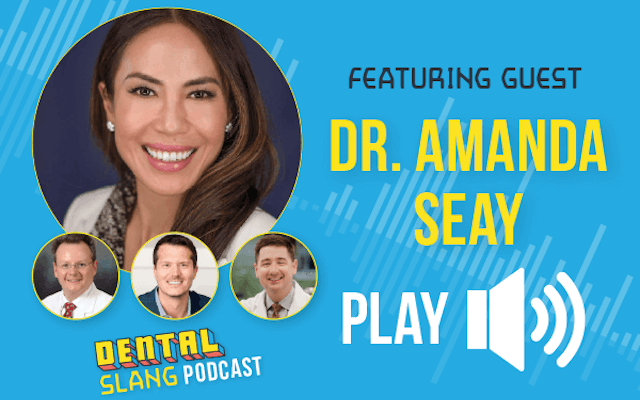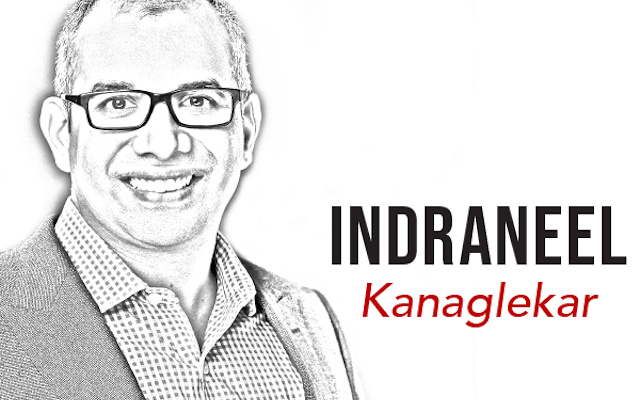As a young boy growing up in Wichita, Kansas—where his next door neighbor inspired him to become a dentist—Dr. Howard Farran remembers how the farmers headed out to the barn after dinner with their ham radios to talk to somebody in another town, state or even country. He was blown away, and learned from an early age the difference between one-way media like television and the interactive media the radios provided.
Memories of those experiences helped him form what is now the Dentaltown message boards. He also remembers going to espn.com back in 1998 and seeing the message boards there, filled with people talking back and forth about sports. He wanted the same setup in dentistry, but at the time, there was nothing like it. Dr. Farran already had a magazine, which he had started a few years before, so he went to work on developing a website and a community around it.
The Dentaltown message boards made their debut in 1999, and 20 years later, the community continues to grow every month. A quarter million members from all over the world have posted about dental topics about 5 million times. The 25,000 members Dr. Farran describes as “hardcore, intense dentists” stay active on the boards, as they want to learn as much as possible so they can advance their practices. About 80 percent of users are from English speaking areas such as the U.S., Canada, New Zealand, the United Kingdom and Australia.
“Dentaltown is a collection of the dentists and dental consultants who live there,” Dr. Farran said. “The magic of Dentaltown is its members. They’ve built such a special community with dentists wanting to share and help each other out.”
How social media has helped Dentaltown grow
When Facebook and other social media sites hit the scene, a lot of people thought they would compete with Dentaltown, Dr. Farran said. That hasn’t been the case. In fact, it’s actually helped grow the community, with more dentists now comfortable with online formats. Use has exploded over the years, and social media has only helped with that.
Facebook follows a news in news out format, which is more for entertainment and keeping up with family and friends, Dr. Farran said. Dentaltown is different. The boards offer dentists a sense of community, and are searchable. So when dentists have a question, they can do a search and quickly gain access to every post and thread ever made regarding that topic.
“It’s really user generated FAQs,” he said. “Every facet of dentistry is in a nice organized database. Our moto is no dentist will ever have to practice solo again. So if you have a patient in the chair and need an answer to a question right away, you can go to Dentaltown, do a quick search and get an answer rather than going to your Twitter account and hoping someone will explain how to fix a broken tooth in 140 characters.”
The podcast
About a year before the last presidential election, Dr. Farran began hearing from dentists who wanted something they could listen to on their commute to work besides politics. Specifically, they wanted him to host a dental podcast.
He liked the idea, and created a podcast that dentists can listen to as well as see, which is different from most podcasts out there. He brings on guests who are passionate about dentistry and has covered just about every clinical and practice management topic you can imagine.
“We’ve hosted 50 of the greatest experts in 25 different genres. We basically cover anything that has to do with dentistry,” he said. “I don’t think there’s a dentist in America who couldn’t find an answer to a problem on Dentaltown or one of the 1,200 podcasts I’ve done.”
Online CE and networking
Dentaltown also offers online education, and that’s an area that’s growing as well, Dr. Farran said. It’s expensive and time consuming for dentists to jump on a plane and take a weekend course, especially when they could sit in the comfort for their home or office and watch a course that costs less than an Uber ride to the airport.
Study clubs also offer great opportunities for dentists to enhance their learning, and he’s seen dentists and specialists find each other on Dentaltown to form small groups. Someone will post saying they’re looking to connect with other dentists in the area, and before too long two or three others will respond. These dentists often come together to take online CE courses, have lunch and learns, watch podcasts or just talk about cases. They become friends who help each other thrive.
“This nurtures their need to belong and to share,” Dr. Farran said. “I love how members naturally arrange themselves into small groups through Dentaltown. They’re learning about implants from the periodontist in their zip code and watching CE courses in ortho with orthodontists. This is happening in growing numbers and I’m really proud that Dentaltown makes this so easy for them.”
Seeking out mentors who live nearby is a great way to learn about specialty areas and to find support. Many dentists worry specialists won’t want to help because it might mean losing business, but that isn’t an issue. They know if GPs handle the easier cases, they’ll send them the more complicated ones. The pie is big enough for everyone, Dr. Farran said, so there’s no reason not to develop relationships and share knowledge with specialists and other GPs in the area.
“It’s counter intuitive because you think you’re competing with each other but you’re not. You’re competing with new cars and houses and trips,” Dr. Farran said. “Our job is to make society realize that saving your teeth is more valuable than a vacation.”
Every dentist should have a mentor they can look to for guidance, Dr. Farran said. Dr. Gordon Christensen is among the dentists who have influenced his career, as is Dr. Carl Misch, who turned Dr. Farran onto implantology. Then there are the dentists behind the more than 400 online courses found on the Dentaltown website.
As far as business mentors, Dr. Farran said just about every autobiography he’s read over the years has helped to guide him in some way—and he’s read quite a bit. There are so many great stories, including Ray Kroc of McDonald’s and the founders of IBM, Home Depot and Walmart. Nothing’s really changed in business, so reading advice or success stories from years ago is just as useful as reading something written today. In fact, Dr. Farran created a 30-day Dental MBA video in 1998 that dentists still find value in 20 years later. The free video is available on iTunes and YouTube.
“Business is business and people are people,” he said. “We may have evolved from smoke signals to the telegraph to the telephone to the internet, but we’re basically the same human beings doing the same basic things. Areas like physics, chemistry, biology, business and economics are stable. They slowly improve but nothing dramatic.”
The importance of relationships
One of the reasons Dr. Farran has been so successful as a dentist and as a businessman is his ability to foster relationships. He doesn’t allow toxic people into his life—and that includes the Dentaltown message boards. When it comes to his practice, he knows how valuable his team members are. Because of that, many of them have been with his practice for more than 20 years. That’s one of the biggest challenges dental service organizations (DSOs) face. Patients see a new dentist and team members every time they walk through the door, which makes it difficult for them to trust treatment recommendations.
“When you walk into a dental office where everyone has been there for years, it feels like going home,” he said. “Everybody wants to go where everybody knows their name. It’s about building trust. When you buy a Coke versus a Dr. Pepper or a Big Mac versus a Whopper, those products are transparent. You know what you’re buying. Dentistry is selling the invisible. If I say you have four cavities, you’re helpless and wonder if you can trust me. But if you see team members you’ve known for years when you walk in and know I’ve been in business for 32 years, you feel more comfortable.”
The future
Dr. Farran believes more and more patients will understand their money is better spent on dentistry than fancy cars and lavish vacations. The dental market will grow and dentists will become more savvy business owners. And technology will continue to change everything.
“I didn’t invent the internet but I used it as a tool right away and it’s been a game changer,” he said. “I’m excited by what cool technology will come out next. You can’t even catch the technology it’s coming at you so fast. No matter how creative your mind is you don’t have a clue what’s around the corner. We’ll be using things in 10 years that we can’t even think of right now.”
 By: The New Dentist
By: The New Dentist



